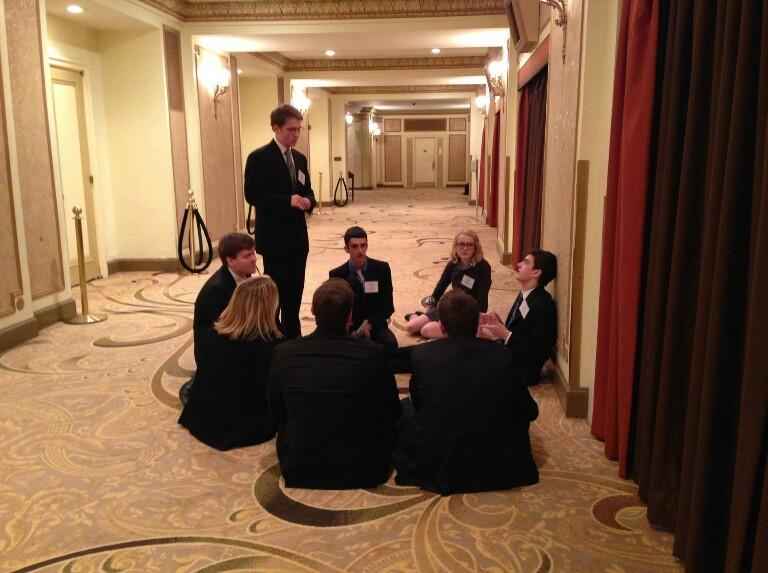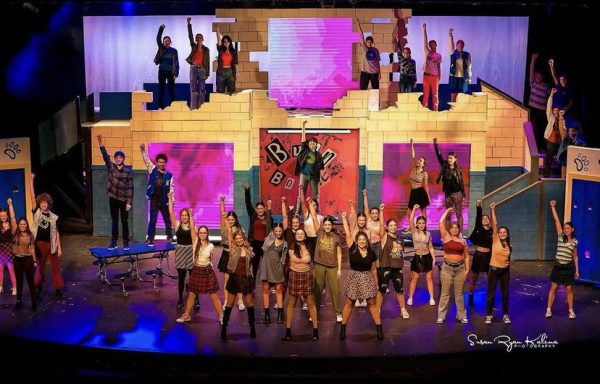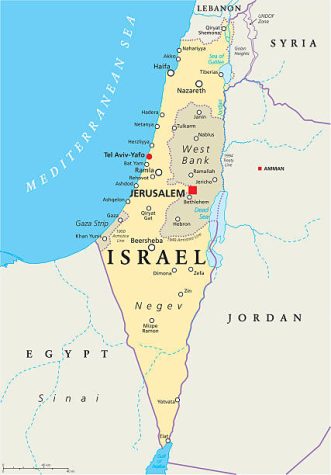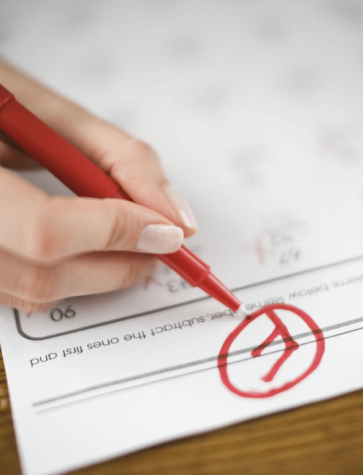Model UN delegate for a day
Your first kiss? Finishing a 5k? Sure, these are all great ways to get your heart racing, but being thrown into Model United Nations (MUN) tryouts surrounded by forty students fighting for twenty spots is as difficult as staying in the red zone during a heart rate day.
The tryout process beings with a formal letter and recommendation letters from teachers and ends with heated debates in three topics relating to the world and DHS. To begin the tryout, students are split up into groups, with a sponsor and captain in each room to ensure every student will have an equal chance in voicing their opinion. After the delegates have been seated, a sponsor opens the floor to any brave and confident delegate to begin debate. From there, students begin shouting at one another, yelling words like “decorum” and “national-sovereignty” to stand out amongst their competitors. It is similar to the Hunger Games, everyone is out there fighting for themselves, to have their voices heard and to prove that they are fit to be on the team. Strong speaking skills are necessary in order for delegates to make persuasive speeches during the conferences and to solve world issues. David Zhao, a senior captain of the team, describes the various parts that compose a MUN conference.
“Model UN is hard to grasp onto in terms of a concept, it has debates, it has elements of speaking, of teamwork, and conflict and resolution, so it combines a lot of social skills and intellectual skills,” Zhao said.
As the debate heated up, students continued with statements in compliance or against their fellow peers. Between speeches, there was so much yelling that I began to fear some of the most amiable faces in this school. The students who were at the greatest advantage were the ones who spoke with their hands and a gripping voice rather than the novices, who held on tight to their pre-written notes. As sturdy and reliable as the information may be, it will not be viewed in that manner with a trembling voice barely heard behind a 3 by 5 index card. Senior Captain, Michael Warren, agrees that nerves are a huge challenge for many trying out, but believes that those who are able to speak past it or channel it positively are the most successful.
“Be confidence, say whatever you have to say with confidence, because if you say it weakly, people are going to jump on you for that. Also, be prepared, show up like you know your stuff, have an element of swagger about you, and whether that’s in the tryout or the conference itself, people are going to be drawn to you,” Warren said.
Throughout the tryout, the sponsors, Mrs. Crowley and Ms. Quagliana, rotate rooms to ensure that every student is heard in debate and judged equally. At the end of the process, everyone is brought into the same room and students must give a 30-second speech in a whip-around style for everyone to have another opportunity to share their knowledge. After tryouts, the sponsors take all the materials they have and make the difficult decision of who will be the best fit for the team.
“There’s not necessarily one type of student that is best for Model UN, and that it’s always good if we have a really wide range of students, and we look for that when creating our teams. I think you can excel in Model UN even if you’re not good at all these things. Model UN is very competitive. If you don’t make it the first time, make sure you come back,” Quagliana said.
Model United Nations if a fast paced club that is demanding in many areas. Throughout the year they have two conferences, the University of Chicago conference (MUNUC) and the Chicago conference (CIMUN), each introducing DHS students to other passionate students from around the world. During the conferences, thinking on your feet is a crucial skill that is learned best by experience and practice. Ultimately, each conference ends with a written resolution that students work on the entire weekend and outlines a complete solution to a pressing world conflict.
“It can be a really intense rollercoaster when you are the conference. One minute you can be giving a speech and everyone’s clapping for you, and you think the resolution is going to pass, and the next minute someone could backstab you, and your resolution is thrown out, and someone can steal your clauses, so we look towards our leadership team for support,” Quagliana said.
From teaching the novices how to wind the ropes of Model UN in debate style, the proper outline of a legislation draft, or how to act in various situations, the leadership team supports everyone on the team both inside and outside of conferences. The team is not only a group of passionate students who love foreign affairs, but a family interconnected by their unique hobbies, talents and personalities.
Since there are a limited number of seats to be filled on the team, there are certain skill sets that are searched for within every delegate. Confidence is key, and having the ability to state something without a quivering voice in a manner in which others will turn their head and think “Who is that kid?” will put one at an advantage. One of the reasons for Deerfield’s successful record in Model UN, including the ranking in the top 125 in the continent, goes to how diverse the delegates are, and the innovative ideas that they develop when discussing various situations and simulations.
Expect the unexpected, and be prepared to have your mind blown away by the incredible minds of your fellow DHS delegates. A small body may provide the greatest contributions in the debate. It is fair game for upperclassmen as well as lowerclassmen for the precious spots on the team. I found an incredible experience and opportunity to get the heart racing at the Deerfield High School Model United Nations tryouts.
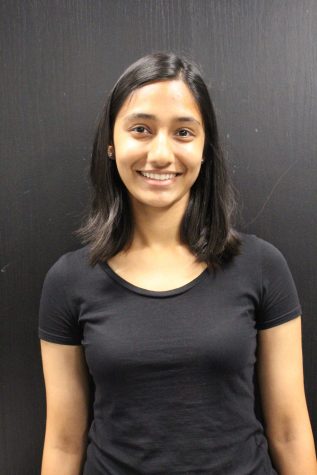
Sakina Naqvi, a junior here at DHS, is a second-year writer for Deerprints. With a passion for journalism, Sakina is excited to explore her talents in...

